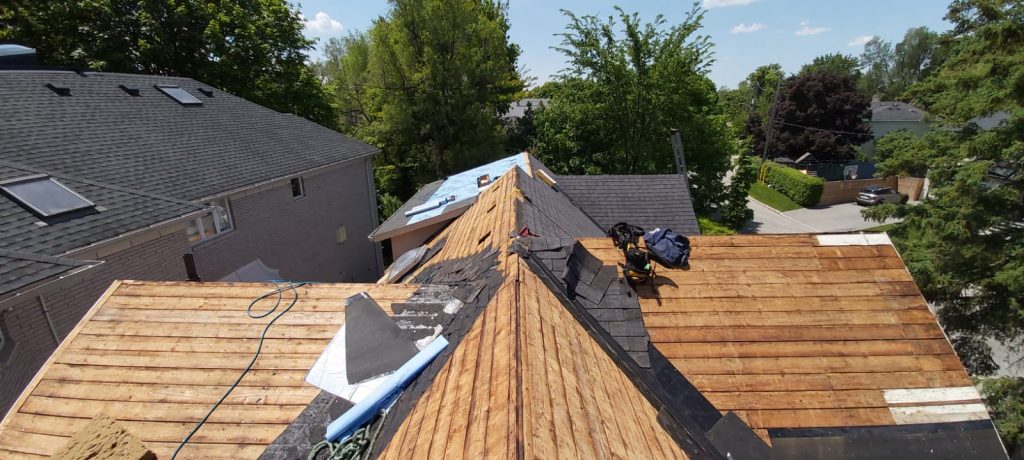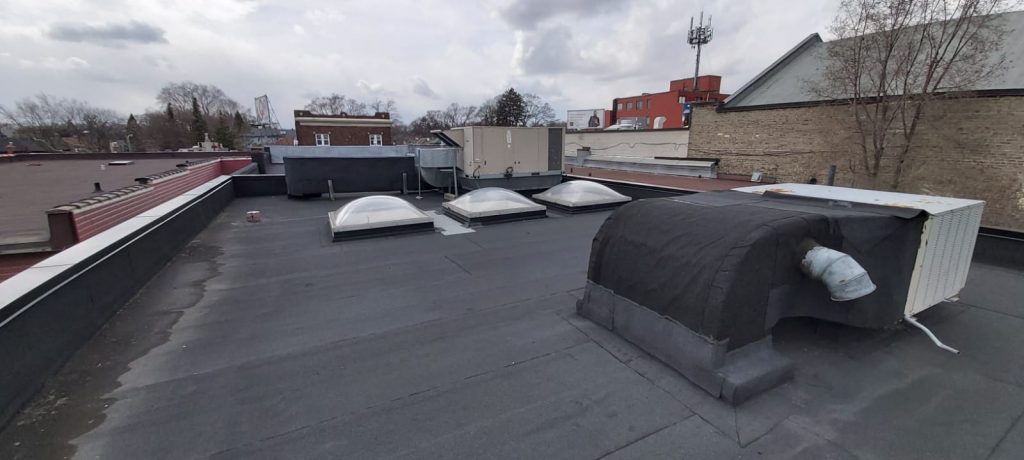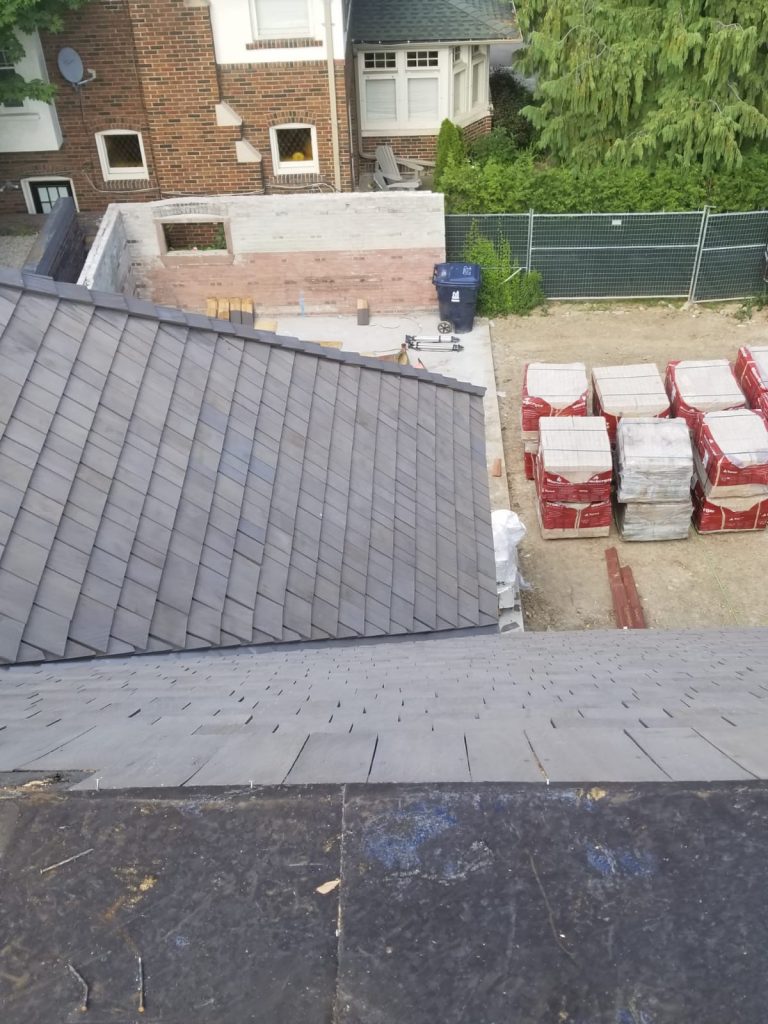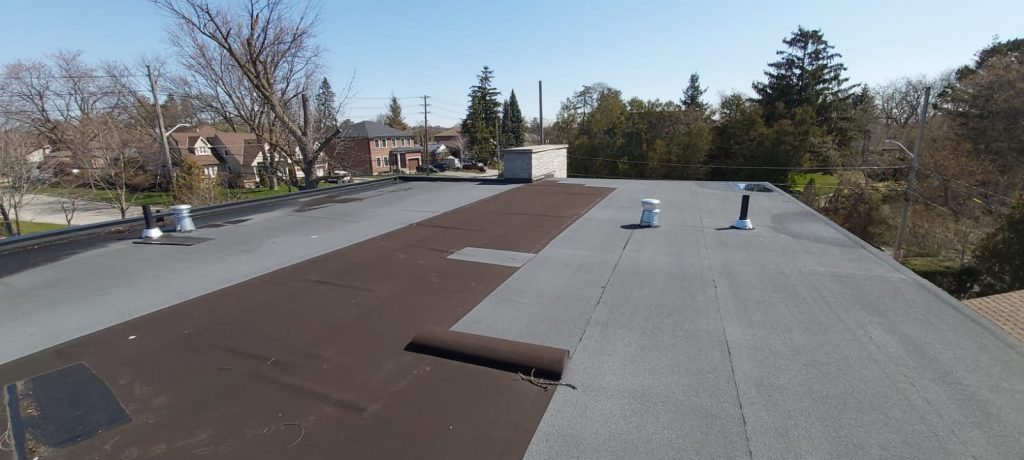Roof Repair in Toronto: A Comprehensive Guide for Homeowners
Your roof is your home’s first line of defense against Toronto’s harsh weather—from icy winters to summer storms. Over time, even the sturdiest roofs develop wear and tear, leading to leaks, structural damage, and costly repairs if ignored. Whether you’re dealing with aging shingles or storm-related damage, this guide will help you navigate roof repair in Toronto with confidence.
Why Timely Roof Repair Matters in Toronto
Toronto’s climate poses unique challenges for roofs. Heavy snowfall, freeze-thaw cycles, and high winds can weaken roofing materials, while summer rains test waterproofing. Ignoring minor issues like cracked shingles or small leaks can lead to:
- Water damage to ceilings, walls, and insulation
- Mold growth from trapped moisture
- Increased energy bills due to poor insulation
- Structural risks like sagging or rot
Proactive repairs not only save money but also extend your roof’s lifespan.

Common Signs Your Roof Needs Repair
1. Visible Leaks or Water Stains
Water stains on ceilings or walls are red flags. Even small leaks can indicate damaged flashing, cracked shingles, or compromised seals around vents.
2. Missing, Cracked, or Curling Shingles
Shingles protect your roof from moisture. If they’re cracked, curling, or missing, your roof becomes vulnerable to water infiltration.
3. Granule Loss in Gutters
Asphalt shingles shed granules as they age. Finding excessive granules in gutters signals deterioration.
4. Sagging Roof Deck
A sagging roof often points to structural issues, such as rotting supports or excessive weight from snow. This requires immediate professional attention.
5. Moss or Algae Growth
While moss might seem harmless, it traps moisture and accelerates roof decay, especially in shaded areas.
Roofing Materials Commonly Used in Toronto
1. Asphalt Shingles
Pros: Affordable, easy to install, available in various colors.
Cons: Shorter lifespan (15–25 years), prone to wind and granule loss.
2. Metal Roofing
Pros: Durable (40–70 years), energy-efficient, resistant to fire and extreme weather.
Cons: Higher upfront cost, noisy during rain.
3. Slate and Tile
Pros: Long-lasting (50–100+ years), fireproof, elegant appearance.
Cons: Heavy, expensive, requires reinforced framing.
4. Flat Roof Membranes (EPDM, TPO)
Pros: Ideal for low-slope roofs, waterproof, UV-resistant.
Cons: Vulnerable to punctures, requires professional installation.

The Roof Repair Process: What to Expect
1. Inspection and Assessment
A licensed roof leak repair contractor will inspect your roof for damage, checking:
- Shingle condition
- Flashing integrity
- Gutters and drainage
- Signs of rot or mold
2. Repair Plan and Cost Estimate
Based on the inspection, the contractor will recommend repairs (e.g., replacing shingles, resealing vents) and provide a detailed quote.
3. Permits and Preparation
Most Toronto roof repairs don’t require permits unless structural changes are involved. Contractors will protect landscaping and set up safety equipment.
4. Execution of Repairs
Repairs typically take 1–3 days, depending on the extent of damage. Key steps include:
- Removing damaged materials
- Repairing underlayment and decking
- Installing new shingles or membranes
- Sealing joints and flashing
5. Cleanup and Final Inspection
Reputable contractors will remove debris and ensure your property is spotless. A final inspection guarantees the repair meets quality standards.
Cost of Roof Repair in Toronto
Emergency Roof repair costs vary based on:
- Extent of damage: Minor fixes (e.g., sealing a leak) cost 200–200–500, while major repairs (e.g., replacing decking) range from 1,000–1,000–5,000.
- Roofing material: Asphalt is the most affordable; slate and metal are pricier.
- Labor rates: Toronto contractors typically charge 50–50–80/hour.
Tip: Get multiple quotes and verify warranties (workmanship + material).
DIY vs. Professional Roof Repair: Which Is Safer?
While DIY repairs might save money, they come with risks:
- Safety hazards: Falls from heights cause thousands of injuries annually.
- Improper fixes: Incorrect techniques can worsen damage.
- Voided warranties: Many manufacturers require professional installation.
Hiring a licensed Toronto roofing contractor ensures:
- Compliance with building codes
- Proper tools and materials
- Insurance coverage for accidents

How to Maintain Your Roof After Repairs
Extend your roof’s lifespan with these tips:
- Clean gutters twice a year to prevent water buildup.
- Trim overhanging branches to avoid debris and animal damage.
- Inspect after storms for loose shingles or dents.
- Schedule annual inspections to catch issues early.
Choosing the Right Roofing Contractor in Toronto
1. Verify Credentials
Ensure the contractor is:
- Licensed (Ontario Business License)
- Insured (liability + workers’ compensation)
- BBB-accredited with positive reviews
2. Ask About Experience
Choose a company with 5+ years of local experience. They’ll understand Toronto’s climate challenges.
3. Review Contracts Carefully
Contracts should outline costs, timelines, materials, and warranty details.
4. Avoid Storm Chasers
Post-storm scammers often offer “cheap” repairs with subpar work. Stick to established local companies.
Emergency Roof Repair in Toronto: What to Do
Severe storms can cause sudden damage. If you experience:
- Major leaks
- Fallen tree limbs
- Collapsed sections
Take these steps:
- Ensure safety: Evacuate if the structure is unstable.
- Mitigate damage: Place buckets under leaks and cover holes with tarps.
- Contact a 24/7 roofing service: Many Toronto contractors offer emergency repairs.
Insurance Claims for Roof Repairs
If damage is caused by insured events (e.g., storms, fire), follow these steps:
- Document damage with photos/videos.
- Contact your insurance provider to file a claim.
- Hire a contractor to provide a repair estimate.
- Keep receipts for temporary fixes (e.g., tarping).
Note: Insurance may not cover wear-and-tear or poor maintenance.

FAQs About Roof Repair in Toronto
Q: How long does a roof repair take?
Most repairs take 1–3 days. Extensive damage may require longer.
Q: Can I repair my roof in winter?
Yes! Professionals use cold-weather adhesives and techniques to ensure durability.
Q: Are roof repairs covered by warranty?
Manufacturer warranties cover material defects, while contractor warranties cover workmanship.
Conclusion: Protect Your Investment with Proactive Care
Your roof is a critical investment in your home’s safety and value. By addressing repairs promptly, hiring trusted professionals, and maintaining your roof year-round, you’ll avoid costly emergencies and enjoy peace of mind through Toronto’s ever-changing seasons.
Need expert help? Contact a licensed Toronto roofing contractor today for a thorough inspection and reliable repairs.